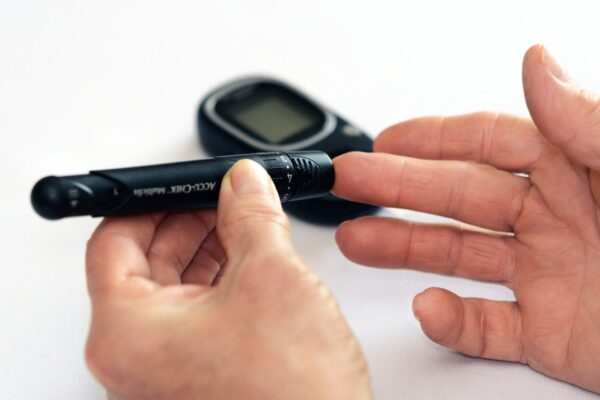Introduction to Chronic Kidney Disease (CKD)
Chronic Kidney Disease (CKD) is a progressive condition where the kidneys gradually lose their ability to filter waste and excess fluids from the blood. Affecting over 850 million people worldwide (WHO), CKD is a silent epidemic often undiagnosed until advanced stages. Left untreated, it can lead to kidney failure, requiring dialysis or transplantation. This guide explores the causes, symptoms, stages, and actionable steps to manage or prevent CKD.
What Causes Chronic Kidney Disease?
CKD develops when damage to the kidneys persists over months or years. Key causes include:
- Diabetes: High blood sugar damages blood vessels in the kidneys (diabetic nephropathy).
- Hypertension: Uncontrolled high blood pressure strains kidney filtration systems.
- Glomerulonephritis: Inflammation of kidney-filtering units (glomeruli).
- Polycystic Kidney Disease (PKD): Genetic disorder causing cysts in kidneys.
- Long-term NSAID Use: Overuse of painkillers like ibuprofen harms kidney function.
- Recurrent Infections: Untreated UTIs or kidney infections.
Risk Factors:
- Obesity
- Smoking
- Family history of kidney disease
- Aging (over 60 years)
Symptoms of Chronic Kidney Disease
Early-stage CKD often has no noticeable symptoms. As it progresses, signs include:
- Fatigue and weakness
- Swollen ankles, feet, or hands (edema)
- Foamy or bloody urine
- Frequent urination (especially at night)
- Persistent itching
- Nausea and loss of appetite
- Shortness of breath (fluid buildup in lungs)
Critical Note: By Stage 4 or 5 (kidney failure), symptoms become severe, necessitating urgent medical care.
Stages of CKD: From Mild to Kidney Failure
CKD is classified into 5 stages based on Glomerular Filtration Rate (GFR):
- Stage 1: Normal GFR (≥90) with kidney damage (e.g., protein in urine).
- Stage 2: Mildly reduced GFR (60-89).
- Stage 3: Moderately reduced GFR (30-59). Fatigue and swelling may appear.
- Stage 4: Severely reduced GFR (15-29). Preparation for dialysis or transplant begins.
- Stage 5: Kidney failure (GFR <15). Requires dialysis or transplantation.
Diagnosis and Testing
Early detection is critical. Doctors use:
- Blood Tests: Serum creatinine to estimate GFR.
- Urine Tests: Check for protein (albumin) or blood.
- Imaging: Ultrasound or CT scans to assess kidney structure.
- Biopsy: In rare cases, to identify specific kidney diseases.
Treatment and Management of CKD
While CKD is irreversible, progression can be slowed:
- Medications:
- ACE inhibitors/ARBs to control blood pressure.
- SGLT2 inhibitors for diabetic patients.
- Phosphate binders to manage mineral imbalances.
- Lifestyle Adjustments:
- Low-sodium, low-protein diet.
- Regular exercise and weight management.
- Quit smoking and limit alcohol.
- Advanced Treatments:
- Dialysis: Filters blood artificially (hemodialysis or peritoneal dialysis).
- Transplant: Replaces failed kidneys with a donor organ.
Preventing Chronic Kidney Disease
- Control Blood Sugar and Blood Pressure: Key for diabetics and hypertensives.
- Stay Hydrated: Drink water to flush toxins (avoid sugary drinks).
- Avoid Nephrotoxic Substances: Limit NSAIDs, contrast dyes, and heavy metals.
- Regular Check-Ups: Annual screenings for high-risk individuals.
Living with CKD: Diet and Lifestyle Tips
- Eat Kidney-Friendly Foods: Reduce potassium (bananas, potatoes), phosphorus (dairy), and sodium.
- Monitor Fluid Intake: Prevent fluid overload in advanced stages.
- Mental Health Support: Counseling or support groups for emotional well-being.
FAQs About Chronic Kidney Disease
Q: Can CKD be cured?
A: No, but early intervention can slow progression and prevent complications.
Q: Is dialysis painful?
A: Dialysis itself isn’t painful, but side effects like cramps or fatigue may occur.
Q: How does alcohol affect kidneys?
A: Excessive alcohol raises blood pressure, worsening kidney damage.
Q: Are herbal supplements safe for CKD?
A: Many herbs (e.g., licorice, turmeric) can harm kidneys—consult a doctor first.
Conclusion
Chronic Kidney Disease is a major global health threat, but awareness and proactive care can save lives. By managing underlying conditions, adopting a kidney-friendly lifestyle, and seeking early medical help, patients can maintain quality of life even with CKD.
Call to Action: If you’re at risk for CKD, schedule a kidney function test with your healthcare provider today. Share this guide to spread awareness!





